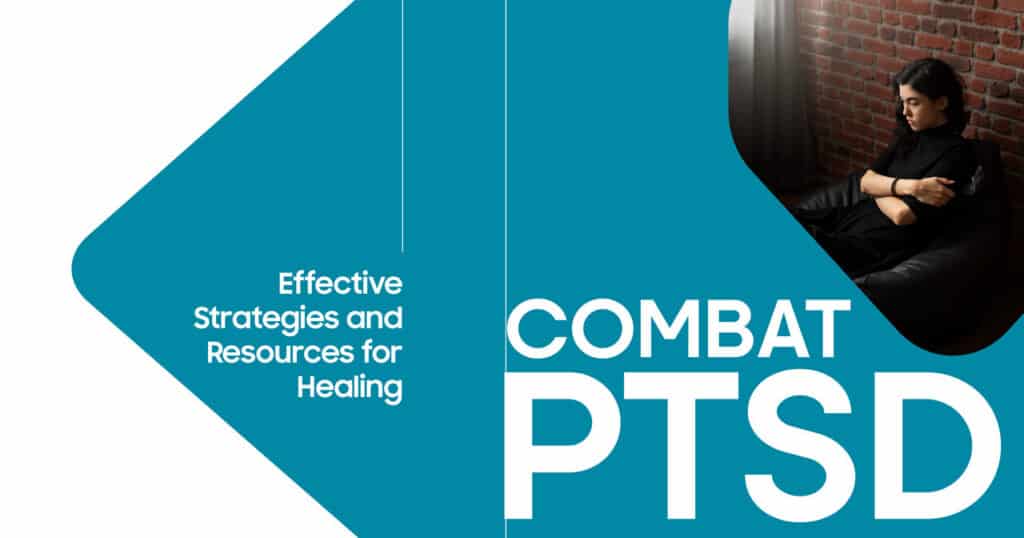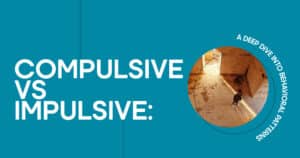The likelihood of exposure to a traumatic event increases when there is military action involved – PTSD and combat veterans are closely connected since there are injuries and deaths whenever military activities are carried out. If you were in the army or someone you know well may have witnessed something traumatic first-hand while serving their country, it may be time to consider getting professional help.
In our guide we will discuss the combat PTSD meaning, the ways this anxiety disorder manifests in veterans, and the most efficient methods to help people whose lives have been overshadowed by this mental health issue.
Combat PTSD Stats
Even though combat PTSD often remains undiagnosed – many former servicemembers do not associate the symptoms of this disorder with PTSD caused by military action and others choose to ignore the harmful signs of a developing illness – the statistics confirm about 7 out of 100 veterans will exhibit at least one or two combat PTSD symptoms.
Moreover, women are more likely to deal with the consequences of emotional trauma – 13 percent of female servicemembers will suffer from PTSD at some point in their lives. There are separate stats for veterans from different eras, and there is not enough data to analyze the presence of combat PTSD in veterans of military conflicts from years ago but the problem is not going anywhere.
What Is Combat PTSD?
Combat PTSD stands for Combat Post-Traumatic Stress Disorder – a mental health disorder caused by a terrifying or stressful event related to the time period an individual spent in military service. It is hard to adjust to regular life after your deployment is over – the hardships multiply when the veteran is constantly reminded about the pain and suffering they went through in a warzone.
Note that certain risk factors increase the possibility of a person developing combat stress disorder:
- You had a direct involvement in military action.
- You were seriously injured or were close to dying.
- You knew your life or the lives of servicemembers and civilians around you were in danger.
- You did not seek any psychological treatment after leaving military service.
- You had to deal with other personal and professional issues that further added to your stress.
Common Triggers of Combat PTSD
While many variables and circumstances may evoke combat PTSD, here is a short list of the most frequent triggers:
| Trigger | Description |
| TV Shows and Movies That Depict Military Conflicts | Try to avoid visual media about war and violence if you notice yourself being anxious, sad, or angry – whether the portrayal was too realistic and it makes you relive the traumatic events you went through or certain things are inaccurate and you feel the creators of the movie or TV show are underplaying your struggles, it is better to watch something else |
| Verbal Arguments | In many instances, a verbal dispute or altercation may lead to a serious conflict – the sides get mad at each other and raise their voices which can make the combat veteran uncomfortable |
Large Crowds | It is difficult for many servicemembers to spend time outside and attend events with hundreds and thousands of people – even going to a shopping mall may be a challenge. There are numerous people moving around, it is impossible to predict their intentions, and a veteran with combat PTSD will experience extreme stress |
Unexpected Loud Noises | Gunfire, firework explosions, and sudden screams may lead to intense flashbacks to military action – when the veteran is still very sensitive to surprise disturbances of this sort, try to shield them from anything random and loud |
4 Combat PTSD Symptoms
If you believe someone you know well exhibits the signs of combat stress, it is important to offer this individual your support and advise them to seek professional help. Look for the following symptoms that indicate the presence of a disorder:
- Violent outbursts and mood swings are common among servicemembers – even individuals who never harmed anyone emotionally or physically in the past may become angry for no apparent reason as well as abusive towards their family and friends.
- Flashbacks and recurring memories about the traumatic event. In many cases, a seemingly innocent conversation may contain a reference to something that reminds the veteran about their experience on the battlefield which leads to intense anxiety and high blood pressure.
- Sleeping disturbances will bother the veteran despite a commitment to a strict sleep schedule. Insomnia, inability to stay asleep for more than a few hours at a time, and nightmares will make the veteran’s life difficult – many individuals have noted they feel fatigued and irritated after getting eight hours of rest.
- Hypervigilance and constant fear of danger burden the servicemember who suffers from PTSD. It is crucial to get therapy if the panic state occurs daily and interferes with the life of an individual – there may be further issues such as paranoia.
How Does PTSD Affect Veterans in Their Daily Life
Unfortunately, PTSD in combat veterans leads to various challenges – here is what a servicemember may have to deal with if their issues are not properly addressed:
| Problem | Description |
Professional Struggles | Since an individual with combat PTSD will experience flashbacks and mood swings combined with a lack of concentration, it will be difficult for them to focus on the job as well as stay away from confrontations in the workplace. The unemployment problem is a serious issue for many veterans who have not taken the steps to manage their disorder |
Avoidance of Other People | A veteran may bottle up their emotions and hide from their loved ones the extent of their suffering. When the person pushes others away repeatedly, the relationships are broken and it is yet another challenge to repair the bond and regain the trust, especially if the veteran in question is no longer capable of connecting with other people in meaningful ways |
| Substance Abuse | At first, a former soldier may occasionally drink to stop thinking about their trauma; however, this may quickly turn into a serious issue, especially if drugs are involved |
Treatments & Recovery for PTSD in Combat Veterans
- Prioritize a Healthy Lifestyle
While the presence of bad habits alone is not going to trigger a PTSD episode, when it comes to your physical and mental health, your poor choices may exacerbate your situation. Try to avoid alcohol and do not believe drugs can become your salvation, put emphasis on healthy nutrition, hydrate enough, exercise a few times per week, and devote several hours every week to hobbies and activities that bring you inner peace – find joy and comfort in your life.
- Seek Professional Help
Private counseling can be extremely beneficial for a person with an immense internal tension; besides, a qualified therapist will evaluate your particular case and recommend further therapeutic options. For instance, group therapy for veterans can be the solution for your problems – you get to meet former servicemembers who can relate to your experiences. Share your memories and feelings with others in a safe environment and find the understanding and compassion you may lack in your life.
- Undergo a Medication Therapy
Based on your initial therapy sessions with a counselor, the latter may suggest antidepressants – FDA-approved drugs that treat the most severe symptoms of combat PTSD. The best combination is therapy and medication, adjusted whenever the symptoms lessen or disappear completely. Make sure you get professional advice and watch how your body and mind respond to medications chosen specifically to guide you towards recovery – remember healing is possible when you are willing to leave your past trauma behind.
FAQs
- Is combat PTSD a common issue?
Upon returning to safety from the war or related military action, a veteran may feel emotionally drained and fatigued. Without swift mental health care, a person in a vulnerable emotional state is prone to developing combat PTSD – out of a hundred veterans, approximately seven individuals will have symptoms of this disorder.
- Are there preconditions that make combat PTSD more likely?
There are specific risk factors that lead to PTSD caused by combat exposure – if the deployment lasted long, a servicemember got a serious brain injury, or their military unit failed to support them properly during and after service, the disorder may manifest sooner or later.
- How can I recognize PTSD/combat trauma?
Loss of appetite, migraines, behavioral changes, aggressive conduct, and intrusive thoughts about a traumatic event or events are among the most frequent signs a veteran needs help with their PTSD.
- Combat stress vs. PTSD: is there a difference?
These two mental health issues are quite similar however they are reactions to events of a different nature – if you went through a horrific accident yet it had no relation to a combat zone, it means you may develop standard PTSD in the future. Moreover, compared to standard PTSD, combat stress is often considered a less complicated issue especially since the distance between the veteran and the battlefield lets the person reconcile with their memories and feelings.
- Can you heal from combat PTSD?
Thankfully, there are plenty of treatment options available for veterans whose lives became more challenging as a result of combat PTSD – relaxation techniques, cognitive therapy, carefully selected medication, and regular therapy appointments will help you cope with this disorder.




